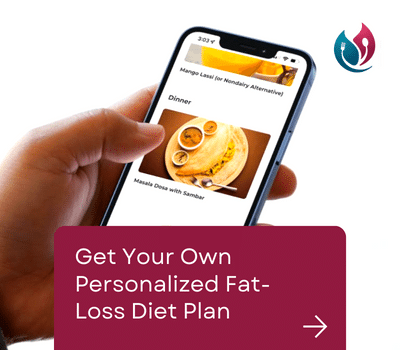Weight loss diets work best if they are personalized. A personalized diet will usually produce more weight loss than a blanket, one-size-fits-all approach. People have different nutrition needs, different schedules, different social situations, different economic realities, and different food preferences, just to name a few. Therefore, a unique individual needs a unique diet plan.
A generalized “blanket” diet will probably work in theory—if you stick to every aspect of it. But when the reality of following the diet hits, it can quickly fall apart. Let’s take a low carbohydrate diet, for example. It goes well for a while, but then your birthday comes around and your mother bakes you a special cake. What do you do? Can you just not eat a piece? Some people can, perhaps, but in that moment an individual’s priorities and values might not align with the diet, and that is a recipe for an unsustainable weight loss plan.
Why a Personalized Diet is Better
Instead, a weight loss plan that considers your lifestyle and preferences is what you should look for. You should be involved in creating the plan. That way, the end result will be practical for you as a unique individual.
A good nutritionist knows this. Nutritionists come in many forms with varied backgrounds and credentials. So it is important to be able to recognize a good nutritionist. To make your diet plan personalized and effective, here are some questions a good nutritionist should ask you.
- What does a typical day look like for you?
The foods you eat will look quite different if you are a student who packs a lunch, an employee of a company with a cafeteria, or a stay-at-home parent. So the routine of your day matters. A weight loss diet typically works best if it happens seven days a week. If you have an active social life on the weekends, or maybe you take a lot of weekend trips, those days need to be a part of your plan. - Who cooks your food?
If you have to learn a whole new way of cooking, or if the person that cooks for you does, that can be a tall order. It’s important to be considerate of your cook when making your plan—even if your cook is you. - Who do you eat food with?
The people you eat with are usually people who are important to you. If the food you eat for your weight loss diet will in any way stress your relationship with those individuals, it might make things difficult. Instead, consider the social aspects of eating when you create your plan. - What is your activity like at work?
The nutrition your body needs will depend on your overall activity. Much of our waking hours are spent at work, and the activity required for various occupations can vary a lot. Therefore, how active you are at your job should be a consideration in creating your diet plan. - What is your activity like outside of work?
The nutrition your body needs will depend on your overall activity, and activity during hours outside of work also matter and should therefore also be considered. - What is your weight, height, sex, and age?
These are key characteristics that are needed to make sure you are getting the right nutrition for weight loss. - Where are you from?
Where you are from often influences the types of foods you eat and how you prepare them. Ethnicity, culture, and background often play a part in your food preferences, and that should be taken into account when creating your personalized diet plan. - What are your go-to foods for your everyday meals?
Ideally, your weight loss diet looks similar to your normal diet with some modifications. That way, it doesn’t disrupt your life. Paying attention to what you eat takes enough effort. There is no need to add shopping at new stores, spending more time and money on food preparation, eating weird foods, or cooking separate meals for yourself and the rest of your family to that list. - How many times do you eat at a restaurant each week?
If going to restaurants frequently is part of your life, that is usually for a reason. You perhaps prioritize convenience to save time on food preparation over other things. Perhaps your job requires you to eat out with clients often. Why would that change these basic aspects of your life just because you need to lose weight? You don’t need to. Instead, you can learn how to eat at restaurants and still lose weight. - What foods do you hate? Any Allergies?
Obviously, a food you hate or that you are allergic to should not be included in the diet. A diet plan that includes foods you won’t or can’t eat is doomed to fail.
Compared to some weight loss diets you might have tried, a personalized diet that takes these aspects of your life into account might sound luxurious. But it is not luxurious. It is necessary for most people to succeed. And it’s what you deserve. Losing weight for health should be as straightforward and practical as possible because it’s important for your health.


